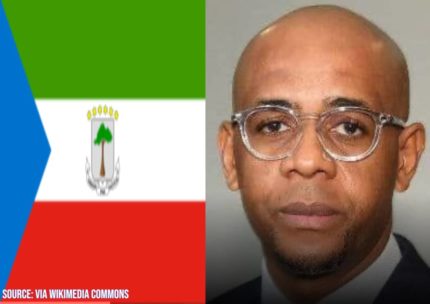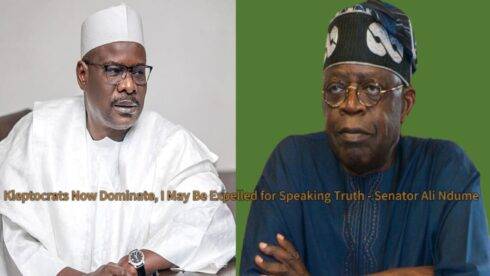The government of Equatorial Guinea has taken decisive action by dismissing Baltasar Engonga, the Director General of the National Financial Investigation Agency (ANIF), following a scandal involving over 400 compromising videos. The footage, which surfaced online, allegedly shows Baltasar Engonga engaging in intimate relations with the wives of high-ranking officials and prominent individuals in the country. The scandal has sent shockwaves across the nation and raised serious questions about accountability within government institutions.
The dismissal was announced through an official government statement, which cited “misconduct in office and social behavior incompatible with public office” as the primary reasons for Baltasar Engonga’s removal. Baltasar Engonga, who is also the son of Baltasar Engonga, the current President of the Economic and Monetary Community of Central Africa (CEMAC), has yet to respond to the allegations. However, this development has brought renewed attention to issues of ethics and transparency in Equatorial Guinea’s public sector.
Allegations Involving High-Profile Figures Deepen the Scandal
Reports indicate that the released videos involve not only Baltasar Engonga but also the spouses of some of Equatorial Guinea’s most influential men. Among those allegedly implicated are the wives of the Vice President, the Inspector General of Police, and even Baltasar Engonga’s own brother. The involvement of these individuals has amplified the scandal, as it strikes at the core of Equatorial Guinea’s political and social elite.
The circulation of these videos has not only affected the personal lives of those involved but has also brought scrutiny upon the government itself. Questions are being raised about how such misconduct remained undiscovered for so long and the potential breaches in security that allowed these private matters to become public.
Government’s Official Statement Highlights ‘Incompatibility with Public Office’
In an official statement, the government justified Baltasar Engonga’s dismissal by referring to his “alleged misconduct in office” and his “family-related and social behavior” as being incompatible with his position. According to Real Equatorial Guinea, the decision was formalized in Decree No. 118/2024 on November 4. The decree marks a strong stance by the government in maintaining public confidence in its institutions.
The government’s response suggests an effort to distance itself from the controversy, signaling that public trust remains a priority. Observers, however, believe this might only be the start of more sweeping measures within the administration, as leaders aim to restore credibility amid rising public outcry.
Impact on the Political Landscape and Public Perception
The scandal involving Baltasar Engonga has sparked intense debate and speculation across the nation, with citizens questioning the integrity of their leaders. The fact that Baltasar Engonga is closely connected to prominent political figures, including his father, a top official in CEMAC, has added fuel to the fire. Public perception of the government has taken a hit, with many expressing disappointment over the conduct of their leaders.
Analysts predict that this scandal may prompt a broader conversation on ethics in public office in Equatorial Guinea. Some are calling for more rigorous background checks and oversight measures to prevent similar incidents from occurring in the future. The scandal may also impact upcoming elections, as the public calls for more transparency in governance.
Economic Implications of the Scandal on Equatorial Guinea
As the dust settles, there are concerns about the scandal’s potential economic fallout. Engonga’s position as the head of ANIF, an agency tasked with financial oversight, has raised questions about the possible misappropriation of resources or laxity in financial regulations during his tenure. The scandal has led to calls for an audit of ANIF’s operations to ensure that the country’s financial stability has not been compromised.
The dismissal of Baltasar Engonga could prompt international financial bodies to reconsider their dealings with Equatorial Guinea, potentially impacting foreign investment. Economists warn that if the government does not take steps to ensure accountability, the country’s reputation could suffer, ultimately affecting its economy.
Calls for Reform and Stronger Ethical Standards in Government
Baltasar Engonga scandal has underscored a need for stronger ethical standards and reforms in Equatorial Guinea’s governance. Many citizens and advocacy groups are calling for comprehensive measures to prevent similar occurrences in the future. Some have suggested the creation of an independent ethics body to monitor the conduct of public officials, along with stricter penalties for misconduct.
Experts agree that the government’s response to this incident will be crucial in determining the public’s trust moving forward. While Baltasar Engonga’s dismissal represents a step towards accountability, activists believe it must be followed by systemic reforms to ensure that public office remains a position of honor and integrity.
Table of Contents
Discover more from OGM News NG
Subscribe to get the latest posts sent to your email.














